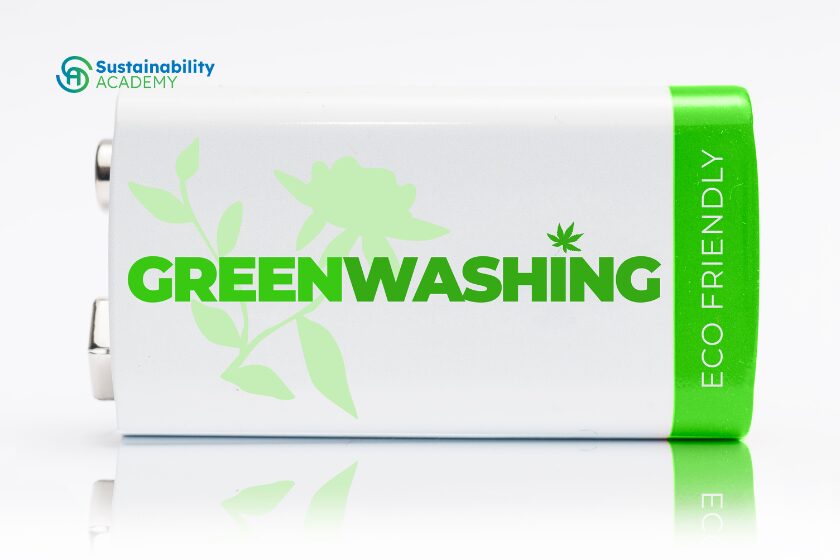Greenwashing, the practice of making misleading claims about the environmental benefits of a product, service, or company’s practices, has been a significant issue in the corporate world. To address this, Canada has introduced new stringent regulations aimed at curbing greenwashing. In July 2024, amendments to the Competition Act were passed, setting forth new requirements for companies making environmental claims. These regulations not only aim to protect consumers but also promote genuine sustainability efforts by businesses.
What is Greenwashing?
Greenwashing occurs when a company conveys a false impression or provides misleading information about how their products are more environmentally sound. It’s a deceptive marketing tactic intended to attract environmentally conscious consumers without making substantial environmental benefits. Examples of greenwashing include false claims about a product being made from recycled materials, using eco-friendly packaging, or being energy efficient without proper verification.
Canada’s New Regulations
The recent amendments to the Competition Act in Canada are designed to ensure that environmental claims made by companies are truthful and substantiated. Here are some key points of the new regulations:
- Burden of Proof: Companies must now provide scientific and verifiable evidence to support their environmental claims. This includes using internationally recognized standards and tests.
- Fines and Penalties: Companies found guilty of greenwashing can face significant fines. The penalties can go up to $10 million or 3% of annual revenues for the first offense, and $15 million or 6% for subsequent offenses.
- Public Accountability: The amendments also include provisions for public disclosure of investigations and penalties, increasing transparency and accountability.
Implications for Businesses
According to the ARC Energy Institute, the new regulations present both challenges and opportunities for businesses. Companies must now ensure that their marketing and product claims are backed by solid evidence. This could involve additional costs for testing and certification. However, these regulations also offer an opportunity for businesses to genuinely improve their sustainability practices, which can enhance their reputation and consumer trust.
- Risk Management: Companies need to be more diligent in their marketing strategies to avoid the hefty fines associated with greenwashing. This may involve revisiting current claims, conducting new tests, and seeking third-party certifications.
- Marketing Adjustments: Businesses will need to adjust their marketing strategies to align with the new regulations. This could mean more transparent communication about the sustainability efforts and practices.
Protecting Consumers
One of the primary goals of these new regulations is to protect consumers from deceptive marketing practices. By ensuring that environmental claims are verifiable, consumers can make more informed decisions. The transparency requirements also mean that consumers can easily access information about any penalties imposed on companies for greenwashing, further empowering them.
The Global Context
Canada’s move to strengthen regulations against greenwashing is part of a broader global trend. Countries around the world are recognizing the need for stricter controls to prevent misleading environmental claims. For instance, the European Union has also been working on similar regulations, and the United States has updated its Green Guides to better define and regulate green claims.
Canada’s new regulations to combat greenwashing mark a significant step towards promoting genuine sustainability. These changes are not only crucial for protecting consumers but also for encouraging businesses to adopt more sustainable practices. As the world becomes increasingly aware of environmental issues, such regulations will play a vital role in shaping a more honest and transparent marketplace.
Businesses must embrace these changes, viewing them not just as regulatory obligations but as opportunities to lead in sustainability and build greater trust with their consumers. By committing to genuine environmental practices, companies can not only avoid the pitfalls of greenwashing but also contribute to a more sustainable future.
Enhance your understanding of sustainability and environmental regulations with our certified self-paced courses at the Sustainability Academy. Our courses are designed to provide comprehensive knowledge and practical skills to navigate the complex landscape of sustainability regulations and practices.
- Certified Greenwashing Auditor: Learn how to identify and prevent greenwashing practices within your organization.
- Sustainable Marketing: Gain insights into creating authentic and effective sustainability marketing strategies.
- Environmental Compliance: Understand the legal requirements and best practices for environmental claims and compliance.
Online Certificate on Green (Sustainable) Marketing

To address all the latest green claims issues, the Sustainability Academy has introduced a brand-new course, the Online Certificate on Green (Sustainable) Marketing. The course provides an overview of key issues and challenges involved in green marketing. It is designed to provide you with the necessary skills to implement a successful marketing strategy according to the latest sustainability frameworks and standards.
Additionally, the course will help you identify and combat greenwashing through real case examples from a variety of sectors.
Special Offer: Enroll now and receive a 25% discount with the promo code “summer25“. This limited-time offer is valid until August 15, so seize the opportunity to advance your expertise in sustainability and environmental management today!

